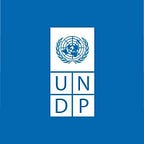Aftermath in Tbilisi: Wading through the facts
By Shombi Sharp, Deputy Head of UNDP in Georgia
Tbilisi, Georgia. 18 June 2015 — It’s still hard to believe what happened. In just four days, the death toll has reached 19 with a handful still missing, hundreds have been left homeless, an entire zoo simply washed away.
In those first evening hours, I, like so many others, marveled at the torrential rain coming down with surprising fury. Driving home a few hours later through streets already beginning to flood, how could I know the devastation was already underway?
Today, as friends and loved ones are laid to rest, the people of Tbilisi are visibly gripped by a powerful mix of emotions. Feelings of shock and loss are confronted by an equally potent, almost unprecedented, sense of solidarity and pride. Residents from all walks of life stand literally shoulder to shoulder, willing their city back to life in an impressive show of civic activism.
The recovery operation — bringing together the authorities, civil society, international organizations and volunteers, all working together in the face of adversity — has been nothing short of extraordinary.
As one 21-year-old volunteer who had joined the first-responders clearing rubble remarked:
“Now I see how people can become citizens.”
Look at how social media is working to match needs with people ready to make a difference at a moment’s notice. I, for one, have certainly learned about the power of community.
However, along with this sense of solidarity comes a growing understanding that the national system of disaster management has to be strengthened. People are asking what might have been done differently to save lives and reduce the extent of damage.
Very soon a national conversation will occur — in the streets it has already begun — regarding the scale and scope of the disaster and consequences of the response.
How can we manage crisis more effectively and help protect vulnerable communities from much of the impact from natural hazards?
At UNDP, we’ve been able to respond almost immediately, working closely with the authorities and international partners, including other UN agencies, the World Bank, and the European Union.
In the hopes that it will contribute to this on-going conversation, here are three takeaways from our experience thus far:
1. Risk reduction is not a luxury
Georgia has always been a high-risk country in terms of disasters. But, over the decade, their frequency and intensity have increased.
Yet national approaches to disaster management still tend to focus largely on emergency responses rather than prevention and preparedness. The destruction we’ve witnessed recently is a clear example of a continuing trend; one need look no further than the 2012 hailstorms in the east, or the recurrent flooding in the Rioni River basin.
The way forward is a sound system of disaster risk reduction codified and integrated into national and municipal policies and practice. It will be incumbent upon UNDP to draw upon its experience and take the lead in promoting risk-informed development.
2. Proper urban planning is a must
For a rapidly developing country like Georgia, speed often takes precedence over sustainability.
The economy has been growing fast in recent years and so were cities and towns, keen to expand and modernize. City planning, however, has yet to catch up to this impressive growth. It’s hard to believe that the capital city of 1.2 million people — still lacks an updated master plan with infrastructure development based on clearly defined construction standards and a thorough assessment of the environmental and social impact of growth.
3. Early warning and communication can save lives
At times of crisis, accurate and timely information becomes a decisive factor for preventing the loss of human life.
Georgia has yet to to develop an early warning system that would allow for swift and coordinated reaction to an emergency. This includes early warning measures, coordinated crisis response, and disaster preparedness and mitigation.
If we do not take advantage of the lessons of — as the Deputy Mayor termed it — this “trigger event”, an opportunity will have been lost to save lives of future generations.
On Saturday night, Tbilisi received two months of rain in a couple of hours, but the consequences didn’t have to be what they were. And what happens when the next torrential rains reach Georgia?
That all depends on how much effort and resources we’re willing to invest today.
